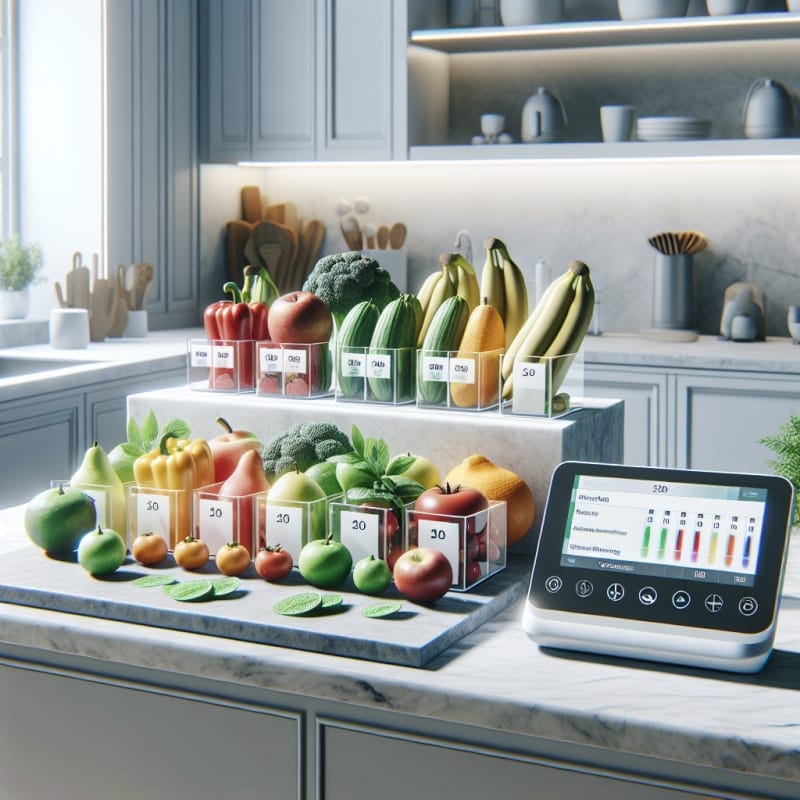Changing the Future of Food Allergy Testing with Advanced Diagnostic Methods
Food allergies affect millions worldwide, making ingredient transparency and accurate diagnosis essential for health and peace of mind. With the rise of advanced diagnostic technologies, the landscape of food allergy testing is rapidly evolving—empowering consumers, clinicians, and regulators to make smarter, safer choices. This article explores the latest innovations, regulatory updates, and how tools like Food Scan Genius help individuals navigate food sensitivities with confidence.
Why Accurate Food Allergy Testing Matters
- Prevalence: Over 32 million Americans have food allergies, with rates rising globally[1].
- Severity: Reactions can range from mild discomfort to life-threatening anaphylaxis.
- Hidden Risks: Undeclared allergens and cross-contamination remain leading causes of food recalls and hospitalizations[2].
How Advanced Diagnostic Methods Are Transforming Allergy Testing
Traditional food allergy diagnosis often relies on skin prick tests and serum-specific IgE measurements. However, these methods can yield false positives or negatives, leading to unnecessary dietary restrictions or missed risks. Recent breakthroughs highlighted by SelectScience are changing the game:
| Diagnostic Method | How It Works | Benefits |
|---|---|---|
| Component-Resolved Diagnostics (CRD) | Measures IgE antibodies against individual allergenic proteins | Improved specificity, reduced false positives[3] |
| Basophil Activation Test (BAT) | Assesses immune cell activation in response to allergens | Predicts severity, supports clinical decision-making[4] |
| Multiplex Microarray Platforms | Simultaneously screens for multiple allergens using a single sample | Efficient, comprehensive, cost-effective[5] |
Key Advantages of Next-Gen Allergy Testing
- Personalized risk assessment for individuals with complex allergy profiles
- Faster, more accurate results to guide dietary and medical decisions
- Supports regulatory compliance with evolving food labeling laws
Regulatory & Industry Updates: What Consumers Need to Know
Regulatory authorities like the FDA (U.S.) and EFSA (Europe) are tightening food labeling requirements and recall protocols to protect people with allergies[6]. Recent news highlights the urgency:
- Food Safety Alerts: In June 2024, the FDA issued a major recall on snack bars due to undeclared peanuts, underscoring ongoing risks.
- Labeling Laws: The EU’s FIC Regulation now requires clearer allergen labeling, benefiting those with sensitivities[7].
- Emerging Trends: Plant-based and keto products are surging in popularity, but may introduce new allergens (e.g., pea protein, tree nuts) or cross-contamination risks[8].
How Food Scan Genius Simplifies Smart Food Choices
For consumers navigating allergies, sensitivities, or dietary preferences, ingredient transparency is critical. The Food Scan Genius app empowers users to:
- Scan barcodes to instantly check for allergens, banned ingredients, or dietary compatibility
- Receive real-time alerts on food recalls and regulatory updates
- Customize profiles for allergies, intolerances, and ethical preferences (vegan, kosher, etc.)
User Testimonial: “As someone with multiple food allergies, Food Scan Genius has been a lifesaver. I can shop with confidence, knowing I’ll get instant warnings about hidden ingredients or recalls. Highly recommend!” – Alex P., New York
Frequently Asked Questions
What are the most common food allergens?
The “Big 9” allergens include milk, eggs, fish, shellfish, tree nuts, peanuts, wheat, soybeans, and sesame[2].
How can I stay informed about food recalls?
Check the FDA’s recall page or use apps like Food Scan Genius for instant alerts.
Are new food trends safe for people with allergies?
While plant-based and keto foods offer variety, they may contain new allergens. Always check labels and scan products for safety.
How do advanced diagnostic tests improve allergy management?
They provide more precise, personalized results, reducing unnecessary food avoidance and improving safety.
Looking Ahead: The Future of Food Allergy Management
As food systems become more complex and global, the need for accurate allergy testing and transparent labeling grows. Advanced diagnostics, stricter regulations, and smart consumer tools like Food Scan Genius are reshaping how we manage food risks. By staying informed and leveraging technology, everyone—from allergy sufferers to ingredient-conscious shoppers—can make safer, smarter food choices.
Bottom line: Understanding what’s in your food is more important than ever. With the right knowledge and tools, you can confidently navigate the evolving food landscape. Download Food Scan Genius today and take control of your food safety journey.
References:
[1] CDC: Food Allergies in Schools
[2] FDA: Food Allergies
[3] PubMed: Component-Resolved Diagnostics
[4] PMC: Basophil Activation Test
[5] EFSA: Food Allergies
[6] EFSA: Allergen Risk Assessment Guidance
[7] FoodNavigator: New EU Food Labelling Rules
[8] FARE: Food Trends and Allergies





